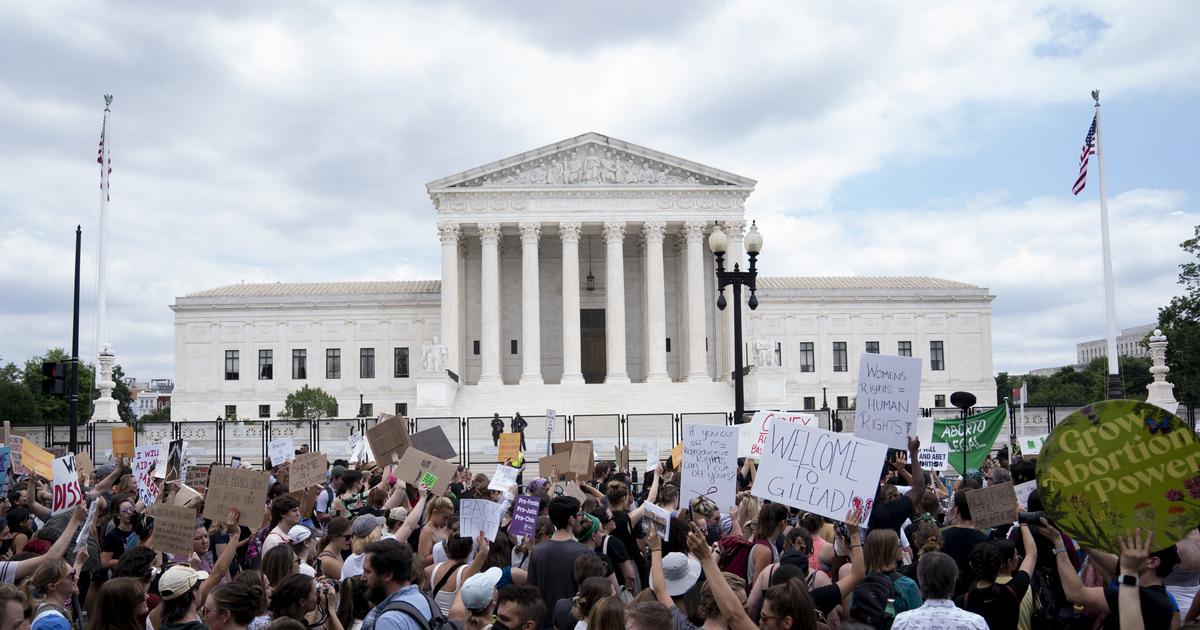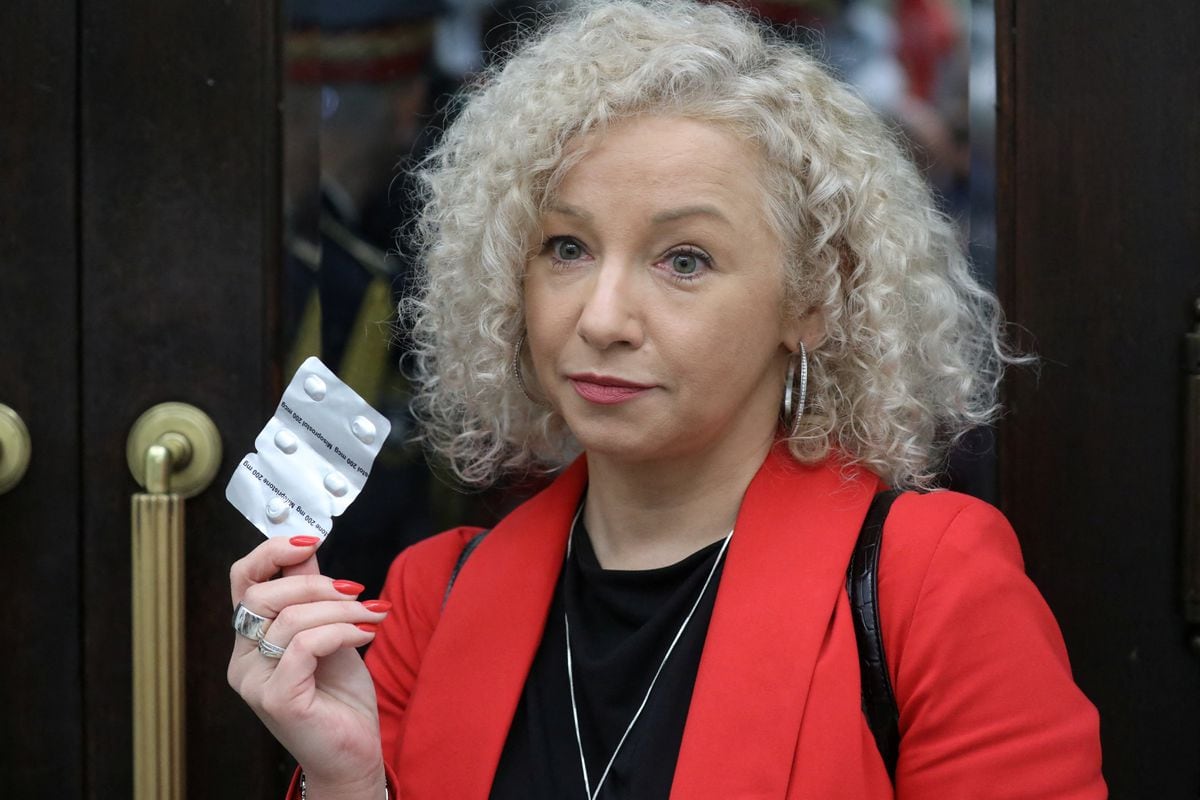Does the issue of abortion in social networks need new regulations?
1:54
(CNN) —
It's an unfounded message that experts say is repeated over and over again: Having an abortion can harm a woman's mental health, perhaps for years.
"There is so much misinformation, so many myths about abortion. That abortion will lead to substance abuse, depression, suicidal thoughts; that abortion is bad for your health; that all women are going to regret it," said social psychologist Brenda Major. Distinguished Professor Emeritus in the Department of Psychology and Brain Sciences at the University of California, Santa Barbara.
'We need to stop tiptoeing around the word abortion': Human rights group says key to access is open dialogue
In fact, decades of research have shown that "the vast majority of women feel they made the right decision and have no regrets," said Major, who led an American Psychological Association (APA) task force English) in 2008 that explored the science of abortion and mental health.
Women who had a first-trimester abortion were no more likely to have mental health problems than women who continued with an unplanned pregnancy, the APA review concluded.
A large, long-term study, called The Turnaway Study, tracked the mental health of nearly 1,000 women in 21 states who wanted and received an abortion and women who wanted but were denied an abortion between 2008 and 2010.
advertising
The women were interviewed every six months for the next five years.
At the end of that time, 99% of women who aborted believed they had made the right decision;
in fact, relief was the predominant emotion, one analysis found.
Women who had an abortion had similar or lower levels of depression and anxiety than women who were denied an abortion and were no more likely to experience post-traumatic stress than women who carried their baby to term, according to the results of the study.
The research also found no difference in mental health outcomes between having an abortion in the first trimester and having an abortion later in the pregnancy.
disinformation sources
Misinformation about abortion can come from friends or family, an article or study read online, or during a mandatory pre-abortion counseling session that some states implemented during the Roe vs.
Wade, experts told CNN.
Abortion: Which US States Have the Most Restrictive Laws?
Of the 33 states that have required patients to receive counseling before an abortion, eight routinely included the potential for negative psychological responses as part of the discussion, according to the Guttmacher Institute, a nonprofit research and policy organization that focuses on abortion. on sexual and reproductive rights around the world.
"There were states where women were told that because they were going to have an abortion, they were at increased risk for depression, suicidal ideation, post-traumatic stress disorder and more," said Julia Steinberg, an associate professor of science at the family at the University of Maryland School of Public Health.
"Abortion doesn't cause depression, it doesn't cause suicide (or) suicidal ideation. It doesn't cause substance use. It doesn't cause anxiety disorders," said Steinberg, who has studied the impact of abortion on mental health for years.
In fact, the best indicator that you won't do well after an abortion was a "previous history of mental health problems," Major said.
"The best predictor of post-abortion substance use was if you were already abusing substances, and the best predictor for post-abortion depression was if you had been depressed before having an abortion."
Misinformation about abortion also comes from studies published in academic journals that conclude abortion causes mental health problems, experts say.
"The studies make it sound like there's a debate, but what's really going on is that these studies are very poorly done," Steinberg said.
"They are not methodologically rigorous and do not adhere to scientific principles."
The 2008 APA task force issued a scathing rebuke of the research quality of many studies that found mental health problems after abortion.
Studies often failed to control for factors such as rape, intimate partner or sexual violence, or a woman's history of prior mental disorders or substance abuse.
"We reviewed all the legitimate studies that had been done on this topic," Major said.
"The methodological flaws in so many of the studies cited as showing harm to women's mental health as a result of having an abortion were simply appalling."
A subsequent 2018 National Academies of Sciences, Engineering, and Medicine review looked at studies on the impact of abortion on future fertility and pregnancy outcomes, risk of breast cancer, mental health disorders, and premature death.
People express their anger after the repeal of Roe v.
Wade that caused abortion to be banned in some states
"Much of the published literature on these topics falls short of scientific standards for rigorous and unbiased research," the report stated, concluding that "having an abortion does not increase a woman's risk of secondary infertility, hypertensive disorders related to pregnancy, abnormal placentation (after a D&E abortion), preterm birth, breast cancer, or mental health disorders (depression, anxiety, and PTSD)."
However, this belief that abortion harms women's mental and physical health has been used to justify "waiting period laws, two-trip requirements (in which women must return twice), and providing women with inaccurate information about medical abortion," Steinberg said.
Being denied an abortion
The Turnaway Study also looked at the short-term and long-term impact of being denied an abortion.
Results showed that women who were rejected were more likely to experience significant anxiety and stress.
"In my research, what we found is that the challenges of having an abortion -- finding a place, traveling, having to disclose your abortion to someone you would have preferred not to -- increased symptoms of depression, anxiety and stress," said social psychologist Antonia Briggs, one of the Turnaway investigators from the Advancing New Standards in Reproductive Health (ANSIRH) project at the University of California, San Francisco.
"And then the minute you're denied an abortion, those symptoms escalate even more. And then over time they dissipate," explained Briggs, an associate professor at UCSF.
Women who were denied an abortion and who carried their babies to term were "much more likely to experience physical health problems at the time of delivery, since childbirth is much riskier than having an abortion," she said. Briggs.
Two of the women in the study died during childbirth.
A 2012 study found that the risk of death associated with childbirth is about 14 times higher than the risk of abortion.
After five years, the study found that women who were denied an abortion were more likely to "live in poverty and experience economic hardship, including more bankruptcies, debt, and challenges meeting life's basic necessities." Briggs said.
Women who were rejected were also more likely to be tied to a violent and abusive partner and to have chronic health conditions, Briggs said.
"They also lowered their aspirations (for the future) and were less likely to achieve them," she added.
Search histories, location data, text messages: how personal data could be used to enforce anti-abortion laws
If a woman who was denied an abortion had children under the age of 5, those children were less likely to reach their developmental milestones, more likely to live in poverty and less likely to have bonded with their mother, the study found. .
Will these results affect more women now that Roe vs.
Wade?
"I am completely overwhelmed with concern," Briggs said.
"I am concerned that people will be able to get the care they want. Some will have to overcome a lot of hurdles to access care.
"Hopefully, others will safely self-manage their abortions by accessing medical abortion pills online, which we know to be quite safe," Briggs said.
Before the Supreme Court's overturn, more than half of all abortions in the US were performed via a two-drug prescription drug method, according to the Guttmacher Institute.
"Then there are some women that I'm concerned about using other, less safe methods to self-monitor pregnancies or carry to term a situation that they feel is not ideal for them," Briggs said.
AbortionRoe v.
Wade








